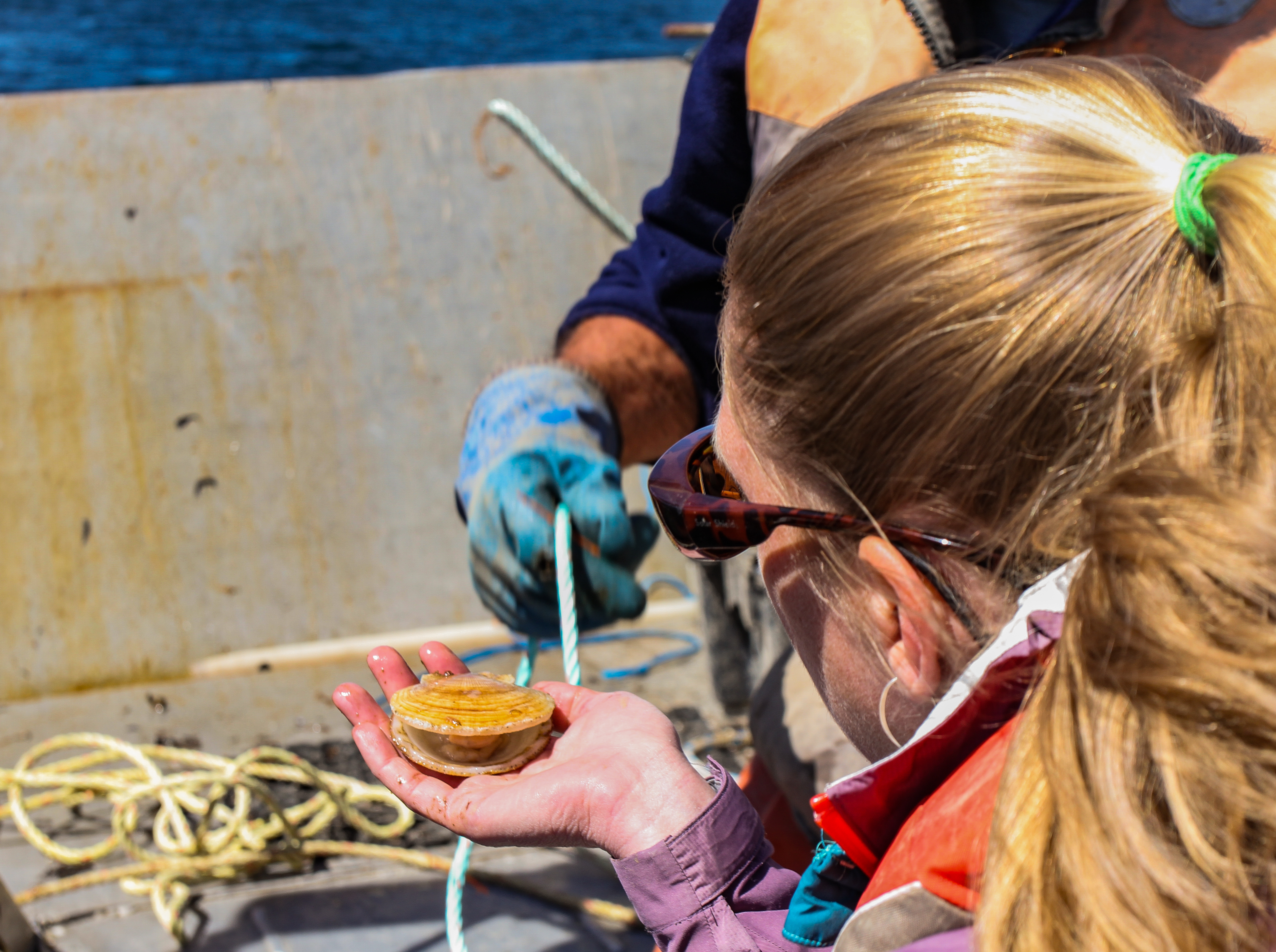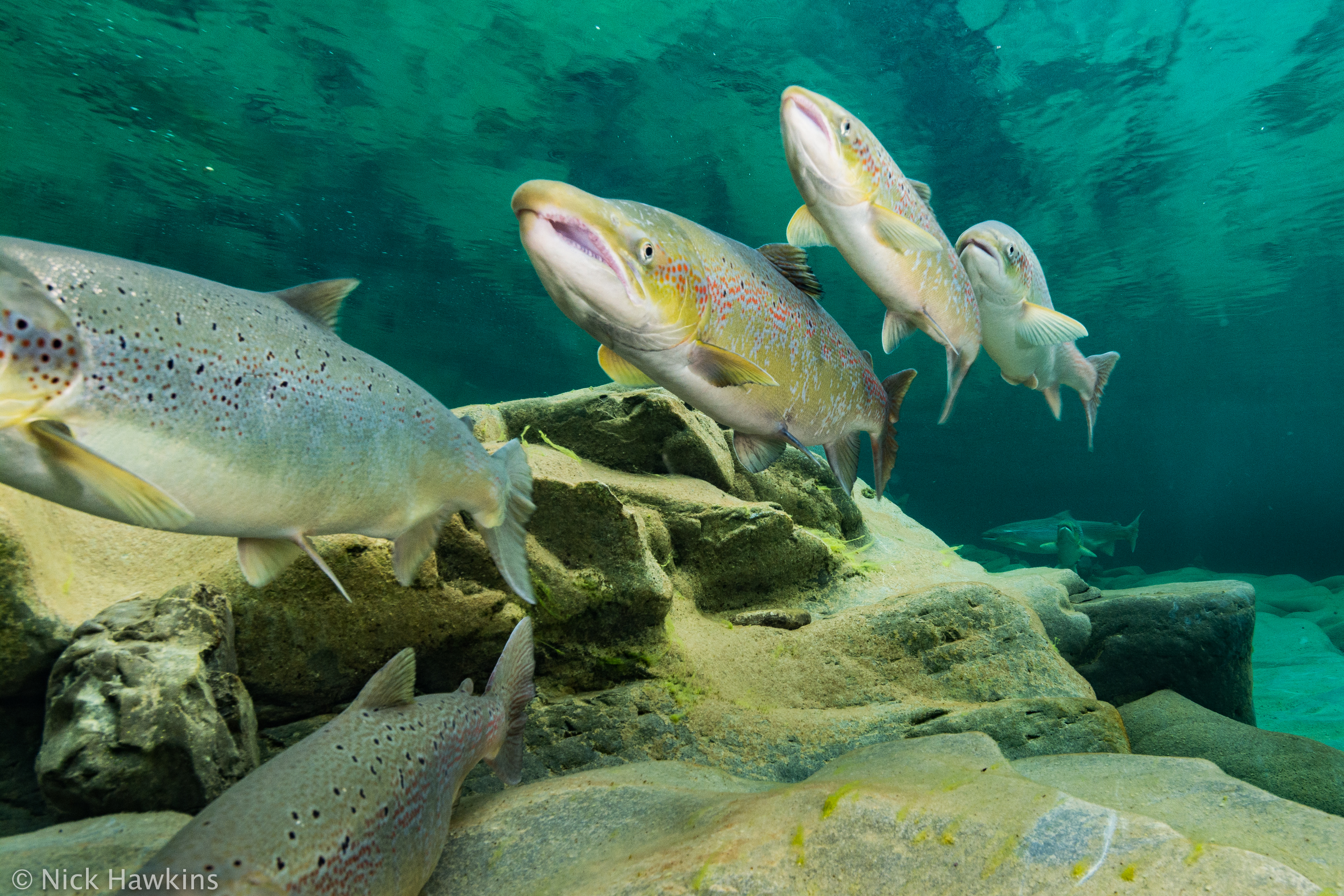
The Ecology Action Centre (EAC) advocates for a more sustainable Canadian aquaculture industry. Aquaculture policy should be guided by a plan to create meaningful opportunity in coastal communities, while minimizing impact on marine ecosystems and risk to established livelihoods in fisheries or ocean tourism. The goal of our efforts is to promote a full transition away from open-net pen salmon farming across Canadian waters. We also advocate for support and investment in low-impact and regenerative aquaculture such as small-scale seaweed and shellfish farming. This form of farming can improve local food security, rehabilitate fish habitat, sequester blue carbon, and provide local ownership and employment opportunities.
Planning for Transition: Moving Salmon Farms Out of Canadian Waters
Planning for Transition: Moving Salmon Farms Out of Canadian Waters
In Nova Scotia, 15 years of widespread community opposition to sea-cage salmon farming developments have yielded few industry improvements. We have worked to get rigorous regulations and monitoring of this aquaculture sub-sector in place over successive governments. Examples of our work include participating in the Doelle-Lahey Panel Review and subsequent development of 2015 provincial regulations, submitting extensively to proponent review processes and exposing the environmental impact of industrial salmon farming in our waters. The Government of Nova Scotia continues to support a massive expansion of sea-cage salmon sites, and the industry plans to quadruple open-net pen production throughout the province within the next decade.
The negative impact of this industry has been clear for nearly two decades in New Brunswick, British Columbia, and in fish farming waters around the world. After years of unsuccessful efforts to mitigate harm from the industry in Nova Scotia, it is clear that the problems of escaped salmon, sea lice, disease, and waste buildup plaguing the salmon farming industry cannot be fixed through regulation alone. The Government of Canada has committed to transitioning salmon farms out of the Pacific Ocean by 2025. We seek similar action on the East Coast, where we face the same problems. Those same companies cannot leave the West Coast only to be allowed to start the cycle of pollution again in the Atlantic.
To enable this transition, we are calling for three actions: (1) fair compensation and support for workers at existing open-net pen sites, (2) research, development, and business supports for sustainable shellfish and seaweed aquaculture at scales appropriate for our bays, and (3) market incentives encouraging industry towards responsible, closed-containment and land-based finfish aquaculture technology.
We work with local stewards and municipalities to provide resources, organizational capacity, and expertise.
The EAC strives to ensure that projects are not developed without a social licence to operate. This means acceptance must exist within the local communities. Visit the Healthy Bays Network to learn more about how we are working with organizations throughout the province to achieve this!
An Aquaculture Act for Canada: Do We Need It?
An Aquaculture Act for Canada: Do We Need It?

For the first time, the Canadian government has proposed an Aquaculture Act. As we have done throughout the past two years of the proposed Act’s development, we are calling again on federal legislators to develop national standards for aquaculture operations that can hold industry and provincial regulators to account, enhance protections for wild fish and fish habitat, and incentivize a transition away from open-net pen aquaculture in Canada.
At present, we are faced with draft legislation that appears to be heavily slanted in favour of the aquaculture industry. We hold this view as the proposed legislation is intended to streamline regulatory processes and provide certainty for operators. We cannot allow aquaculture laws that place profit over the protection of aquatic ecosystems, and we are encouraging Fisheries and Oceans Canada to reform the proposed legislation’s second draft, or drop it entirely.
You can read our submissions to the Department of Fisheries and Oceans on the potential Aquaculture Act here, here and here.

